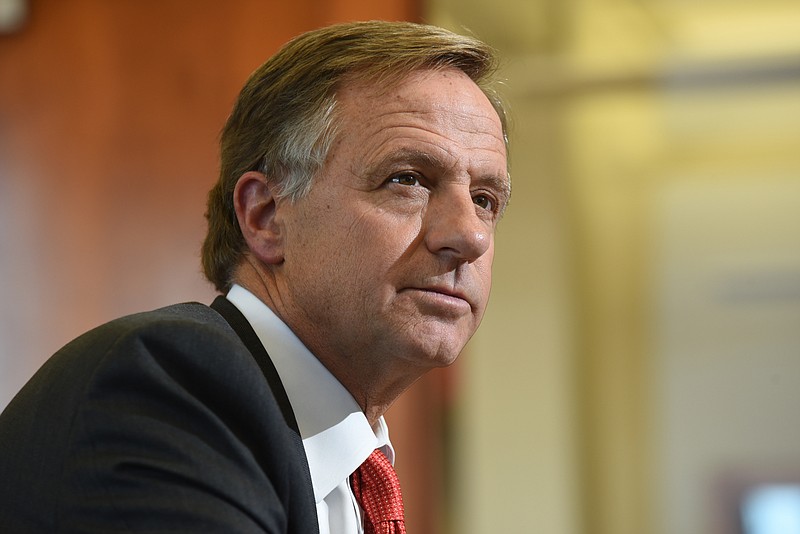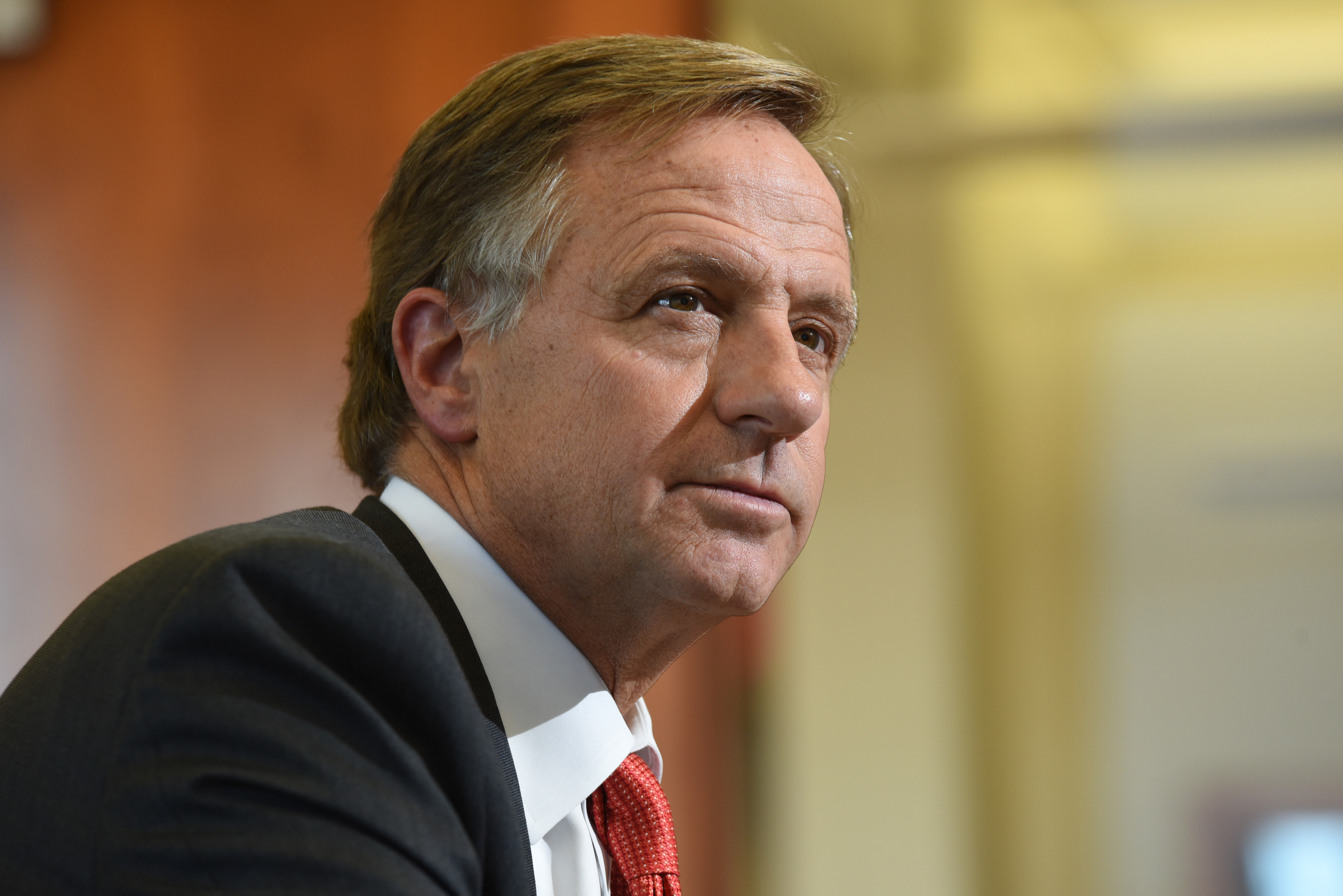NASHVILLE - Gov. Bill Haslam said today it wasn't beneficial when presumptive Republican presidential nominee sharply criticized New Mexico Gov. Susana Martinez after the chairwoman of the Republican Governors Association declined to endorse the New York business tycoon.
"At the end of the day I don't think that's helpful," Haslam, a former RGA chairman himself who has yet to meet with Trump but wants to in order to do so, told reporters this afternoon.
"I mean, I think you have a lot of Republican governors who would like to see their next president be a Republican and we want to help.
"But," Haslam added, "we also think that, like I said, from a state's perspective there's a lot of things that we'd like to share with a candidate from our party about what's important in terms of state and federal relationships. We hope to have productive conversations."
Trump last week attacked Martinez, one of the nation's most high-profile Latina Republican politicians who has criticized Trump over his call for a wall between the U.S. and Mexico, during his own campaign rally in Albuquerque.
The presumed GOP nominee accused Martinez of "not doing the job" and blamed her on issues ranging from Syrian refugees, Albequergue's high unemployment and increases in the number of New Mexico residents on food stamps.
"It's your governor's fault," The New York Times quoted Trump telling thousands of booing supporters. "We have to get your governor and get going."
Haslam, who backed U.S. Sen. Marco Rubio, R-Fla., in Tennessee's GOP primary in March, said he and a group of four to five other governors are trying to schedule a meeting with Trump prior to the July convention on his views of the relationship between states and the federal government.
But he said that's been difficult given both Trump's campaign schedule and their own duties.
On another matter, Haslam said you can count Tennessee as among states looking at getting involved in a widely watched South Dakota court battle over that state's law requiring internet retailers to collect sales taxes just as bricks-and-mortar businesses must do.
South Dakota passed a law aimed at forcing the U.S. Supreme Court to return to its 1992 decision saying states couldn't compel out-of-state mail-order firms to collect sales taxes unless they have an in-state physical presence of some sort.
"As you know I've been in favor of Congress passing the Fair Market Act up there so that our local retailers are treated the same way as folks who are just selling over the internet," Haslam said in response to a question.
"Unfortunately," Haslam said, "I don't know that Congress is going to act. It looks like they keep delaying and delaying. They say they're going to take it up but they haven't had a vote on it. So ultimately, I think it'll take the Supreme Court ruling on that."
The governor noted some on the nation's highest court "have basically said we would like somebody to challenge this because the Quill ruling was in a whole different world back before internet retailing and everything else. So we're following that because obviously as a sales tax driven state we have a very vested interest in it."
That includes both his office and that of Tennessee Attorney General Herbert Slatery, Haslam said.
As for whether the state would join with South Dakota officials in court, Haslam said "we might. It's too early to say. We're looking at ramifications and how we would do that, what that would mean?"
Tennessee is among states restricted by the nearly quarter century-old landmark U.S. Supreme Court ruling in Quill Corp. v. North Dakota in how they are able to require out-of-state retailers to collect sales taxes on items purchased by their residents. The decision came years before the rise of e-commerce but has been applied to internet sales.
Stateline has reported that a number of states are eyeing the South Dakota case as a means to revisit their ability to collect an estimated $11 billion in sales taxes they currently can't get at. Brick-and-mortar retailers, meanwhile, complain the decision creates a government-imposed and unfair playing field for them.
States' laws can compel online retailers to collect the tax but only if they have an actual physical presence such as a store, warehouse, an in-state subsidiary or if they contract with a local business to advertise their products, Stateline reported.
When internet-retailing giant Amazon struck its deal with the previous Bredesen administration to locate two warehouses in Chattanooga and Cleveland, part of the agreement called for the company not to have to collect sales taxes. It later blew up as a full-scale legislative controversy not long after Haslam assumed office.
The deal was later renegotiated and Tennessee agreed to help Amazon lobby Congress to change federal law and allow states to require the internet companies to collect what is owed.
Stateline says states are "pinning their hopes" on Associate Justice Anthony Kennedy's remarks in a 2015 Colorado case where he said it may be time to reconsider Quill, calling it "questionable even when decided."
A 2009 University of Tennessee study estimated the state, which depends on sales taxes for more than half its revenues, would have lost some $5.6 billion from 2007 through 2012 with $1.23 billion alone in 2012.

